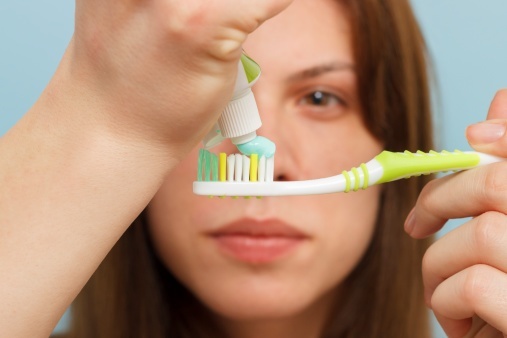By Erica Laceria on Aug 17, 2020 @ 11:00 AM
Teeth brushing is a simple yet crucial practice that we should all have started at an early age. We most likely learned from our parents, who learned from their parents, and so on. Even if we are conscientious about brushing, many of us still have dental problems. Some dismiss it as a genetic issue, but others wonder what they are doing wrong. With that in mind, we are proud to share some simple yet effective techniques to be aware of with teeth brushing that might turn the tide for you.
Key Takeaways:
- Brush not only teeth but also tongue and cheeks to remove bacteria.
- Avoid brushing immediately after meals, especially acidic ones; wait an hour to protect enamel.
- Use gentle brushing techniques to prevent gum irritation and recession.
- Floss regularly to clean areas unreachable by toothbrush bristles.
- Replace toothbrush every three months to maintain effectiveness.
- Drink water to aid saliva production, which helps fight mouth bacteria.
- Schedule regular dental check-ups for early detection of potential issues.
- Good oral hygiene contributes to overall health, potentially preventing conditions like heart disease and dementia.
The Do's and Don'ts of Brushing Your Teeth
- Brushing only your teeth is like washing only part of your car; your windshield is clean, but the rest is still covered in dirt. The bacteria that leads to bad breath and contributes to poor health takes over your entire mouth. When brushing your teeth, give your tongue and cheeks a light scrubbing to take care of the bacteria.
- Brushing after a meal is a bad idea, especially if you're brushing right after a meal, especially with acidic foods. Give your mouth a chance to neutralize any acids naturally through saliva. The experts at Colgate recommend waiting an hour after a meal. Why? Acids in the food you eat may have started softening the enamel. Saliva will neutralize the acid. If you don't wait, you'll brush against softened enamel, potentially damaging your teeth.
- Over-brushing can be as harmful as under-brushing. Spending excessive time at the bathroom sink or brushing too frequently during the day can lead to enamel erosion. While being diligent about oral hygiene is commendable, it's crucial to strike a balance. The recommended frequency is two to three times a day for two minutes each time.
- Brushing too vigorously can irritate your gums and cause them to pull back, exposing the root area to bacteria. Small circles with the bristles of your toothbrush angled upwards towards the gum line provide just enough brushing to reach the area immediately under the gum without exposing yourself to further infection.
- Too-firm bristles can contribute to receding gums. A medium to firm toothbrush has no benefit over a soft or very soft bristle toothbrush. The firmer the bristle, the more likely you will erode your enamel and irritate your gums. Soft bristles massage the gums while knocking any food or plaque residue-free. Most people only need the soft bristles, while children's toothbrushes are often very smooth. Your dentist can tell you if you should be using a firmer brush.
- Flossing is one of the hardest practices for people to get into the habit of. According to Drugstore News, people avoid flossing for a number of reasons, ranging from "forgetting" to "shredding floss." Flossing, however, is an essential part of a dental hygiene routine. Even a firm-bristled brush can't get everything. Flossing, however, can reach where the bristles can't, and waxed dental floss avoids shredding except in cases with densely packed teeth.
- Not replacing your toothbrush is a bad idea. After about three months, the bristles wear out and lose their flexibility. Be sure to replace it with an ADA-approved toothbrush (not all are!).
- Not drinking water is a problem that more people have than you would think. Water, pure H20, is no substitute for dental hygiene. In addition to keeping you hydrated, plain water helps produce saliva that fights the bacteria in your mouth.
- Avoiding regular dental check-ups is a significant stumbling block. If you have no tooth issues, why see a dentist? The answer is that you might need to realize that you have a problem. For example, you may not know that you are grinding your teeth at night. All you know is you wake up with headaches from time to time. A regular check-up (about every six months) can help resolve issues like TMJ before they become problematic. They can also aid in early detection of things like oral cancer. Regular check-ups, a proactive step, can ensure your dental health and overall well-being. Get those check-ups!
Good oral hygiene is more than just a great smile and avoiding bad breath. It is a robust investment in your overall health. Oral health has been linked to preventing other conditions, such as heart disease and dementia. Learning how to brush your teeth properly and then taking the time to do so is an investment in your health that is well worth the effort. So, let's get inspired and motivated to care for our oral health!
Want to have Solstice benefits? Call our sales team at 877.760.2247 or email Sales@SolsticeBenefits.com
Already have Solstice benefits? See your plan details by going to https://www.mysmile365.com/ or calling us at 1.877.760.2247.





comments